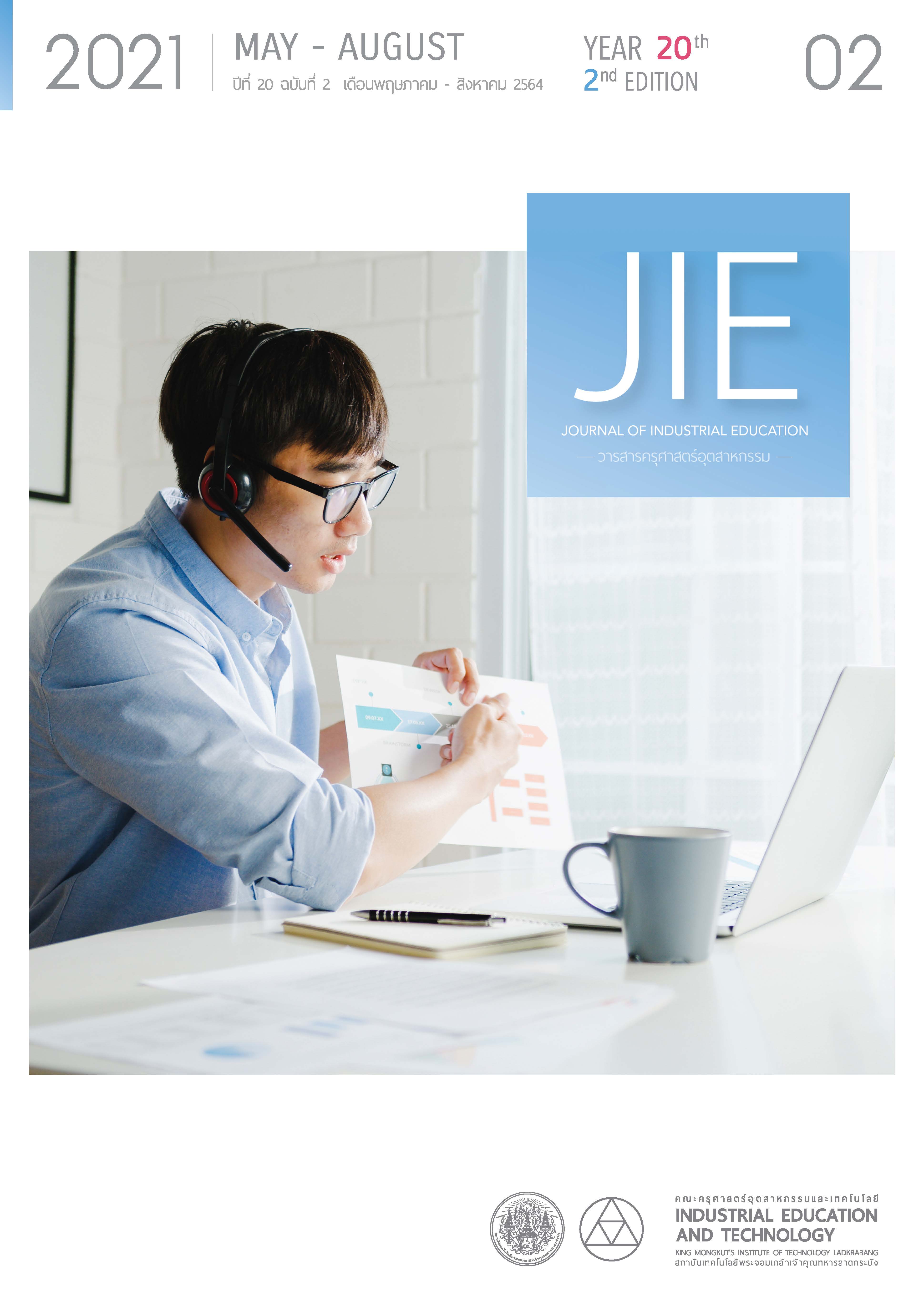LEARNING ACTIVITIES BASED ON 5 PRACTICES TO ENHANCE MATHEMATICAL REPRESENTATION ON FUNCTION FOR GRADE 10 STUDENTS
Keywords:
Learning activities, Five practices, Mathematical representation, FunctionAbstract
The purpose of this research was to enhance a mathematical representation of Mathayomsuksa 4 students through learning activities based on five practices. The participants were 37 students in Mathayomsuksa 4, Semester 2, the academic year 2020, at an large particular school in Nakhon sawan province. It took 11 hours for learning activities. The tools used in the research were four lesson plans, activity sheets, and a test on a mathematic representation. All research tools were checked for appropriateness by three experts. The data obtained were analyzed using analytic scoring. Mathematical representation was separated into three processes including 1) representation for understanding the problem, 2) representation for problem solving processes, and 3) representation for concluding the problem. The basic statistic tools used in this study were frequency and percentage.
The findings revealed that most of the students for 64.57 percent were at a good level of mathematical representation. In other words, they can draw and mark to understand the problem, identify the information and asked question, represent their idea through mathematical symbolism before problem solving processes, and use graph and equation to support their explicit and reasonable answers.
References
Thongnuan, P. (2011). “The effects of organizing active learning emphasized representation on mathematical achievement, reasoning, and communication abilities in relations and functions of mathayomsuksa IV students.” Master’s thesis, Srinakharinwirot University, 198-206. (in Thai)
Moonsuwan, S. (2015). Effect of organizing mathematics learning activity using FOPS strategy on mathematical reasoning ability and mathematical representation of eighth grade students. An Online Journal of Education. [online]. Available: https://so01.tci-thaijo.org/index.php/OJED/ article/view/40485 Retrieved April 23, 2021. (in Thai)
Shulman, L. S. (1986). Those who understand: Knowledge growth in teaching. Educational researcher. [online]. Available: http://depts.washington.edu/comgrnd/ccli/papers/shulman_ThoseWhoUnderstandKnowledgeGrowthTeaching_1986-jy.pdf Retrieved April 23, 2021.
Makanong, A. (2011). Mathematical Skills and Processes: The development of evolution of mathematics. Bangkok: Chulalongkorn University. 34-35. (in Thai)
Smith, M. S., & Stein, M. K. (2011). 5 Practices for Orchestrating Productive Math Discussions. 3rd ed. VA.: Nation Council of Teachers of Mathematics & Corwin Press. 27-29.
Winaikosol, T. (2019). Effects of organizing mathematics learning activities by using 5 Practices on mathematical knowledge and reasoning ability of ninth grade students. An Online Journal of Education. [online]. Available: https://so01.tci-thaijo.org/index.php/OJED/article/view/189478 Retrieved April 25, 2021. (in Thai)
Samart, P. (2012). “Development of mathematical thinking of eighth grade students by using mathematizing process.” Master’s thesis, Chulalongkorn University, 43-100. (in Thai)
Larsson, M. (2015). “Orchestrating mathematical whole-class discussions in the problem solving classroom.” Master’s thesis, Mälardalen University, 73-79.
Nation Council of Teacher of Mathematics. (2000). Principles and Standard for School Mathematics. Reston, VA.: National Council of Teachers of Mathematics. 7-35.
Unyo, O. (2010). “Effects of organizing mathematics learning activities by using multiple representations and graphic calculator on mathematics concept and problem solving ability of functions.” Master’s thesis, Chulalongkorn University, 123-125. (in Thai)
Slavin, R. E. (1996). Research on Cooperative Learning and Achievement: What We Know, What We Need to Know. Contemporary Educational Psychology. [online]. Available: https://psycnet.apa.org/record/1996-00636-003 Retrieved April 25, 2021.
Downloads
Published
How to Cite
Issue
Section
License
"The opinions and contents including the words in papers are responsibility by the authors."
"ข้อคิดเห็น เนื้อหา รวมทั้งการใช้ภาษาในบทความถือเป็นความรับผิดชอบของผู้เขียน"



